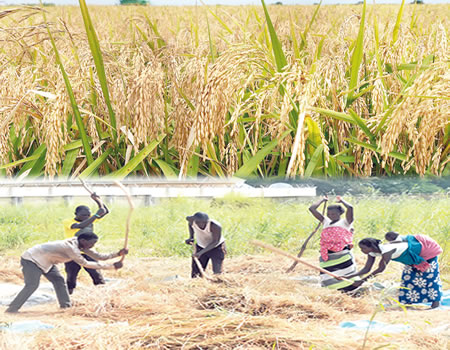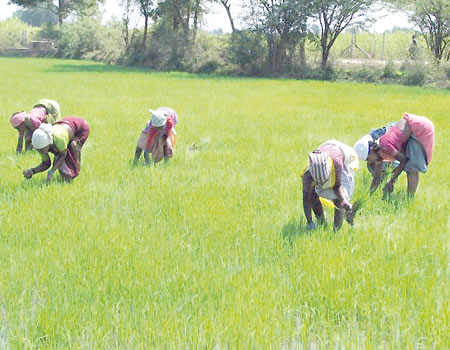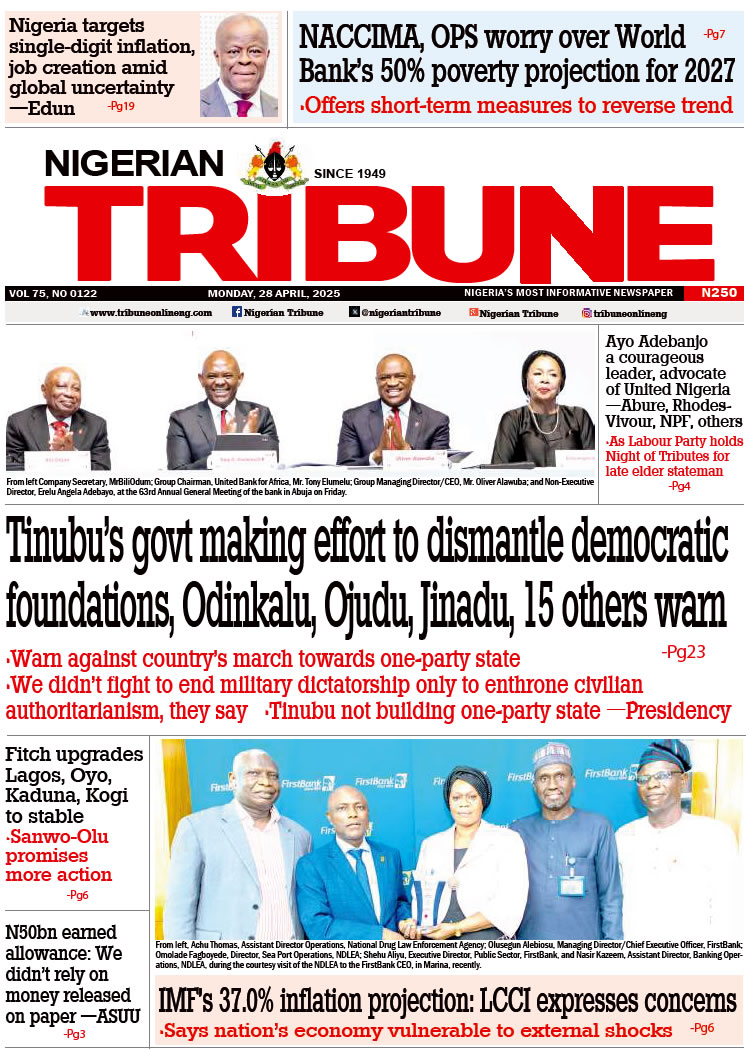
Many people resident outside Kebbi State hold the belief that because the state is a hub for rice production with its two giant rice milling plants, prices of the commodity should be as low as one could imagine, considering its capacity to produce rice in millions of tons and the desire of the farmers to cultivate large rice fields. Ironically, the price of rice is higher in Kebbi than in other rice-producing states of the country.
Big business
One of the factors responsible for this is that rice production in Kebbi State is virtually done during the dry season. To achieve high yield, the farmers must use the water pumping machines powered by petrol to irrigate several hectares of rice fields.
Unlike other states, Kebbi has no dam for irrigation farming, therefore for its farmers to remain in the rice business they must buy fuel on daily basis to irrigate their rice farms.
More so, what is attributed to Kebbi rice being costlier is as a result of the competition among those who come to buy rice in the state and the breakthrough it has recorded in rice production. The state has thus become a haven for millers from across the country and some parts of the West African sub-region. As a result, farmers have to jack up the price of their paddy rice.
According to the chairman, Rice Farmers Association in Kebbi State, Alhaji Sahabi Augie, in an exclusive interview with Sunday Tribune: “We have been buying fuel before this time at the rate of N145 per litre but given the recent fuel situation it has risen to N220 per litre. With this teething problem on our hands, you can imagine the agony of a farmer with about two to 5 hectares of rice field and he must buy up to 15-20 litres every day for three months to power his pumping machine and water his farms. This is another reason our rice is more expensive than the rice produced in other states of the federation.
“Some states have dams, but here we have to spend more money to buy fuel to power the water pumps to produce our rice. With this problem, there is no way it will not affect our cost of production and consequently the price of the commodity. If this is happening, the number of hectares a farmer can cultivate will be reduced and this might result in low output and availability of rice in the market,” he said.
He stressed further that, “We have two large rice mill factories in Kebbi State, Labana and WACOT Rice Mills Ltd. Labana has the capacity to produce 220,000 tons per annum while WACOT has a production capacity of 120,000 metric tons annually and 400 metric tons of rice daily. We also have rice companies coming from Niger and Kano states. We also have local millers coming from Sokoto, Katsina, Zamfara, Ebony, Abia states respectively.
“This has created a form of competition among rice buyers in the state. Another issue is that the important tool a farmer uses to produce rice after land and seed is water. We have to buy fertilisers two or three times in a year, but as far as water is concerned it is a daily activity and we need the pumping machines to be powered by petrol to generate water for the farms. So whether one is a small or medium scale farmer the cost of production must keep escalating.
To produce rice in a during the rainy season is a risk because the yield will depend on the character of the rain circle. The longer the period of rainfall, the better the yield.
Last year there was serious flooding occasioned by the over flooding of the River Niger and River Rima around some farmlands. Several rice farms were overflooded and destroyed. Consequently, some farmers lost everything while some only got less than half of what they expected to harvest.
In other cases, just as rice was about getting ready for harvest there was the shortage of rainfall. This was responsible for some of the low yield or harvest that farmers experienced last year.
Sunday Tribune also spoke with some rice farmers who expressed their frustrations over issues surrounding rice farming especially during dry season when water is needed for irrigation but the scarcity of fuel is frustrating the much-needed effort.
Alhaji Bello Modibo is a rice farmer who said he has been into the rice farming long time before the advent of recent government intervention to make rice farming attractive, thereby producing more locally to discourage importation.
He told Sunday Tribune that before now planting of rice was basically on a subsistence basis, not to make big money. To him, there was not much profit in rice farming. But today the story is different.
“We were only planting than for our domestic consumption and offered little for sale to be able to buy soup ingredients and other household needs.
“Today by the grace of Allah rice farming has become a lucrative business in which everybody wants to be fully involved because of the economic reality attached to it. People from all walks of life are now trooping into this state seeking for land to engage themselves in rice farming,” he said.
Modibo, however, appealed to the state government to as a matter of urgency provide grazing areas for pastoralists to avoid what he foresees as incessant clashes between the rice farmers and pastoralists.
According to him, going by the rate at which the state is moving, every available land would soon be acquired by people who want to go into rice farming which invariably means that pastoralists would find it extremely difficult to graze and rice fields may become an alternative for them. He wants the government to look into this critical area and act fast.
Another farmer who also commented on the challenges confronting rice farming especially dry season farming is Malam Yahaha Umar, a civil servant in the state who also complained bitterly about the current scarcity of petrol, saying the development has seriously affected production and this is why prices of rice in the state still remain on the high side.
According to him, “a litre of petrol now sells for between N200 and N250 in the state, a development that is causing serious challenges. To get it to buy, even at that rate is also a big problem because most of the filling stations around would not sell inside gallon or jerry can.
“What happens next is to find a way to bribe station attendants. Before you know it you have been on the queue for donkey hours. Putting all these challenges together a farmer has no choice than to sell his paddy rice to the millers at a price he feels would be commensurate with the high cost of his production and the sufferings he went through,” Malam Yahaya said.
He also called on the state government to as a matter of priority provide herdsmen with grazing reserves. He argued that going by the rate at which rice farming is gradually becoming an integral part of the nation’s economy, grazing reserves or ranches should be provided for herdsmen whereby shafts gathered from paddy rice could be used to feed cattle to prevent clashes between rice farmers and herders.
Despite all these, farmers in Kebbi State buy their inputs from their own pockets. With no subsidy in terms of fertilizers and seedlings, farmers are earnestly looking up to government for succour.
Alhaji Augie, the Rice farmers association boss is not happy about this as according to him most of the rice farmers are small time rice growers with no deep pockets.
“If we buy inputs at the market price there is no way we will not increase the price of our rice. For now, a 75kg bag of paddy rice is being sold at the rate of N9,000 to N9,500 in the state depending on the quality. The finished rice is sold at the rate of N13,000,” he said.
Alhaji Augie concluded that rice has become a serious business in Kebbi State, adding that many people, such as civil servants, businessmen and contractors are returning to the farm now because of the success that farmers in the state have recorded in rice farming since the flag off of the Anchor Borrowers programme by the federal government.
“Luckily there is a large market for rice even buyers goes as far as the farms to buy rice. There are farmers in this state who have 1, 5, 15, 20 and even 200 hectares of rice fields. There is this lady who was hawking medicine all around but now she is into farming.” She made up to N2 million last season, Alhaji Augie enthused.
That story simply sums up the new dimension to rice farming in Kebbi State today. In less than one year any ambitious man or woman could take to rice farming even on a part-time basis and still become the latest millionaire in town.








